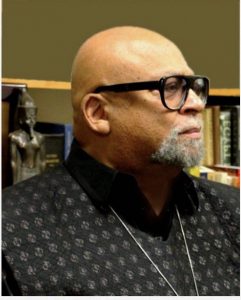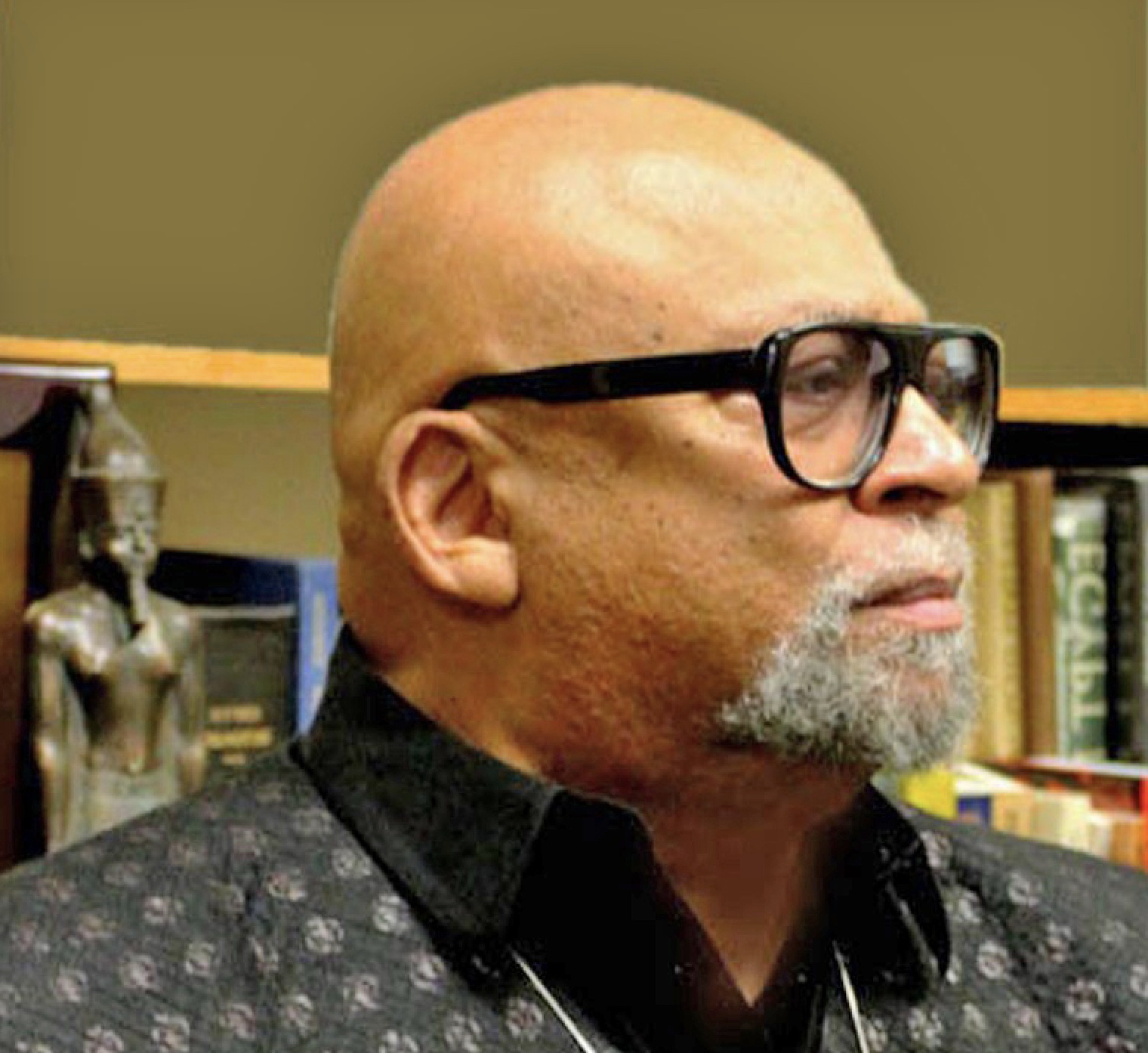
We are again in the midst of August, a special month of commemoration and celebration of a tradition of righteous and relentless struggle essential to our self-understanding and self-assertion as an African people in the world. It is a month that offers hard and heavy evidence of our people in this country and around the world forming themselves and freeing themselves in struggle, in revolution, revolt and liberational resistance of varied kinds.
Indeed, August reminds us of the essentiality, even indispensability of struggle to achieve and sustain the good society and world we all want and deserve, as Nana Frederick Douglass taught us.
Moreover, we come to this month and historical moment conscious of our historical and ongoing role as a key moral and social vanguard in this country and the world. And we understand with Nana Dr. Mary McCleod Bethune, that no matter what we aspire to and achieve nationally, “We must remake the world. The task is nothing less than that.”
Indeed, we are producers and products of a history of struggling for freedom and justice which is praised and used as a model and inspiration for oppressed and struggling peoples in this country and throughout the world. Thus, it is central to our future and movement forward to clearly define and reaffirm the ethical and political imperatives for our struggle and in exchanges for our support of any project, policy or campaign.
The centrality of August in our history of struggle is revealed in a brief list of defining events, issues, actions and honored combatants in our freedom struggle. We arrived in this country in oppression and resistance in August 1619; the historic world-changing Haitian Revolution began in August 1791; and we have the audacious and death-defying revolts of Gabriel and Nana Prosser, August 1800 and of Nat Turner, August 1830; also the Underground Railroad, involving Nana Harriet Tubman, Nana Frederick Douglass and others and dedicated to abolishing enslavement is founded August 1850; and the Hon. Marcus Garvey is born in August 1887 and founds the UNIA in August 1914.
Moreover, in the defining decade of the 1960s, the Watts Revolt lights up the night sky in August 1965, prompting numerous organizational initiatives, including the Organization Us, and Kawaida philosophy out of which were created the Nguzo Saba and Kwanzaa. Finally, The Ferguson Revolt of August 2014 was the historical spark that ignited a forest fire of resistance around the country and brought the Black Lives Matter Movement to international prominence. It is this historical memory and conception of ourselves in righteous and relentless struggle that must keep us ever mindful of our larger struggle, regardless of other projects and proposals.
Certainly, we as a people, are rightly and resolutely focused on defeating Donald Trump and denying him and his supporters and enablers the presidential platform from which he and they would legalize and institutionalize his personal madness, social meanness and lurid longing and logging in for fascism. And we, as a people, are also committed to ensuring the victory of VP Kamala Harris for several compelling communal, gender and political reasons.
Among these are: understanding it as proof written large of more racial and gender barriers being penetrated, if not yet broken down; a deserved and important collective achievement born of centuries of struggle; and an instructive and inspiring symbolism and model for others similarly situated. And our active commitment is also seen as an urgent engagement and rightful investment to realize our aspirations, hopes and struggles for a new society and another way forward, self-consciously inclusive and justly and equitably beneficial to everyone.
But in order for us have more than a vicarious victory through her, and a disappointing outcome of our service and sacrifice, we must have and advocate strongly our own agenda as all others are doing, allowing for and welcoming common ground issues, but stressing also particular communal issues in policy and practice, in a word, racial and social justice Likewise, we should also know and understand at the outset that our liberation struggle is more comprehensive and transformative than elections and that elections are only one battle ground within this larger liberational initiative of ours.
Indeed, as Nana Paul Robeson taught, “the battle front is everywhere; there is no sheltered rear.” And Nana Haji Malcolm reaffirmed the comprehensive character of our struggle, saying, “wherever, a Black (person) is, there is a battle line.” And it is in this context of this critical understanding that we of Us raise the battlecry, “Everywhere a battleline, every day a call to struggle.”
Furthermore, we must make a distinction between being admirers and advocates of Kamala and being those who advise her honestly and continuously on ethical imperatives and political policies in the interest of African and human good and the well-being of the world, and who hold her accountable for acting accordingly. Thus, we cannot collapse our identity as a people with that of hers as a person.
She is being elected to an office, founded and forcibly maintained as a political center for a system of White race and class power and privilege, power for the elite, and privilege and association with racial power for the less powerful and even poor, especially in racial matters. And thus, she enters this place with entrenched constraints that will not let her personal will alone radically change this system, even if she were disposed to do so.
The change will ultimately come from us in righteous and relentless struggle together with other peoples and persons who cross boundaries to build coalitions and alliances for a radical reimagining and reconstructing of this country in ways that ensure an inclusive and shared good for all. And this requires a movement, not just elections, a broad based, multicultural, multiracial, mutually respectful and mutually supportive movement. And it will be not only to penetrate the system of power and elevate a person, but rather to uplift a people, indeed all the people so that all share in the common good in just and equitable ways.
In other words, it will require a fierce and ongoing struggle by progressive and radical forces, to reorder the balance of power so that that nice sounding but non-existent practice of a “government of the people, by the people, for the people” becomes an achieved, living, lived and shared reality.
We are to vote primarily, then, not for a person, but for a people and for conditions and policies beneficial to all and favorable to our continuing larger liberation struggle. This means struggling to agendize and achieve through policy and practice essentials such as: affordable and adequate housing and health care for everyone; guaranteed income and economic security; security of persons and peoples; voting rights and protections; quality education; human rights; reparations; and environmental policies which ensure the well-being of the earth and all in it.
And yes we cannot, nor should we, avoid the moral and political demand for a lawful world order which reaffirms the right to freedom and self-determination and other human rights for all, and the end of empire, occupation, resource robbery, suppression and subversion of vulnerable peoples and the depraved practice and justification of genocide in Palestine. The path we have historically chosen and choose now in the interest of African and human good and the well-being of the world and all in it is dangerous, difficult and a demanding.
But as Nana Nannie Burroughs taught “the struggle and battle to overcome and absolutely defeat every force designed against us is the only way to achieve,” i.e., achieve good for the world and all in it. And if this task seems impossible, she reminds us that we are a people who “specialize in the wholly impossible.”
Dr. Maulana Karenga, Professor and Chair of Africana Studies, California State University-Long Beach; Executive Director, African American Cultural Center (Us); Creator of Kwanzaa; and author of Kwanzaa: A Celebration of Family, Community and Culture and Introduction to Black Studies, 4th Edition, www.OfficialKwanzaaWebsite.org; www.MaulanaKarenga.org.







